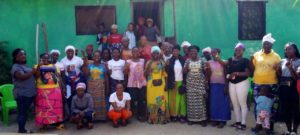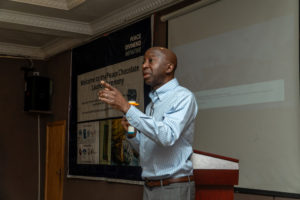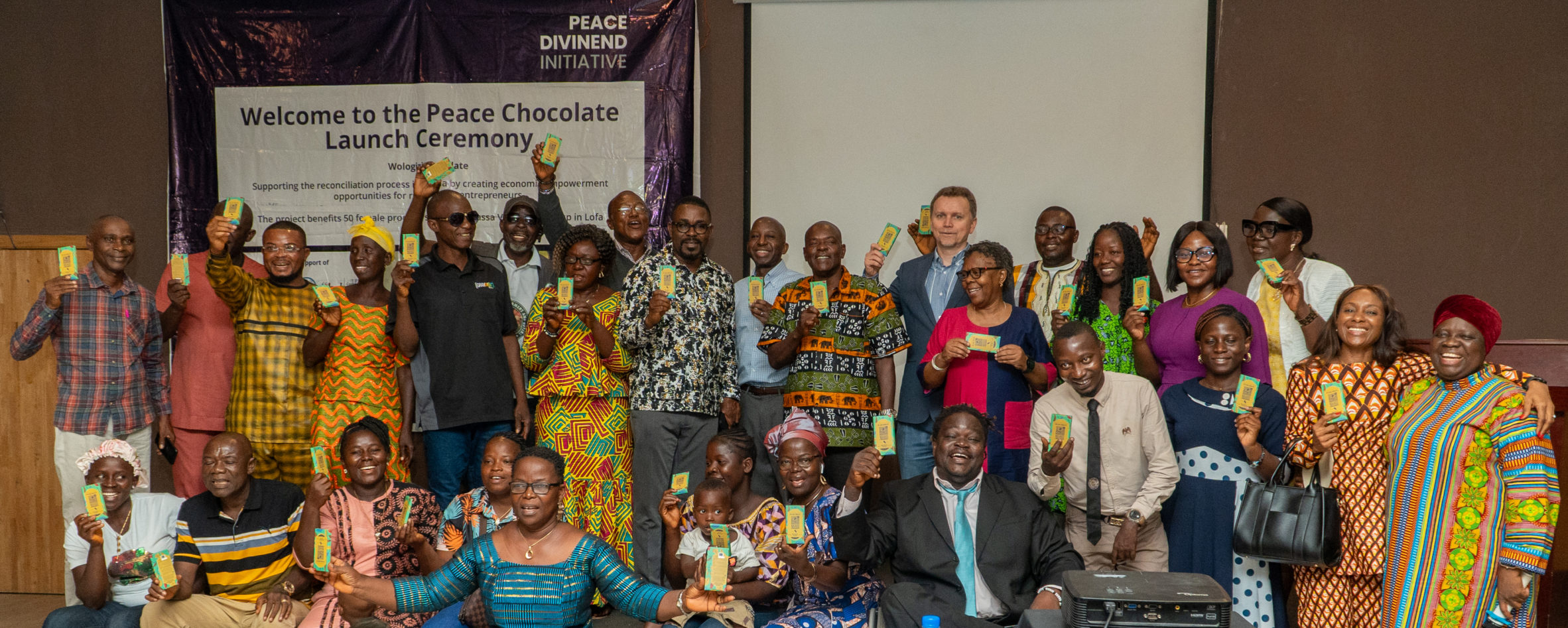How a rural women’s cooperative in a former conflict zone formed the heart of a new business partnership.
During Liberia’s long civil war Lofa County was synonymous with inter-ethnic rivalry and violence. As thousands of people fled across the border to Guinea or Sierra Leone, or were displaced internally, farms were abandoned or taken over by warlords.
Women entrepreneurs at the Komassa Vornambeh (KV) cooperative now want those same farms to become known for something previously unthinkable: high quality organic chocolate.
A nationwide peace may have been established more than 20 years ago, but in the northern Lofa County – and elsewhere – it remains fragile, with tensions not far beneath the surface. Economic advances have been limited, and women and youth in particular feel excluded from any sense of national progress.
Peace Dividend Initiative (PDI) therefore sought to create a project that would both sustain Liberia’s peace and promote local economic empowerment.
Using a traditional crop – cocoa beans – combined with sustainable farming methods and the marketing of a new product, the Peace Chocolate Project was designed to add value to Liberia’s economic activity, which is weak across the board.
“If projects such as this are successful, then they could have a knock-on effect and be emulated in other parts of the country. It’s a small initial contribution, but the logic is strong for Liberia,” explained Paul Dziatkowiec, senior advisor, peace operations at PDI.
The pilot project, also named the Wologizi Chocolate project, was a partnership between KV, which grew the cocoa beans, the Liberia Cocoa Corporation (LCC), which provided technical assistance and produced the chocolate in Monrovia, PDI, and the UN Development Programme and Food and Agriculture Organisation.
It produced bars of 70% high grade organic chocolate, presented in custom-made packaging. Launched at events in Lofa and Monrovia, the 45g bars were put on sale at the Flower Pot store and soon sold out.
It was a remarkable achievement considering that previously the KV cocoa growers hadn’t even been aware that their crop could be transformed into chocolate.
“This was a big change for them, because before they just picked the beans, dried them on the ground, bagged them and sold them to a buyer,” said Dorothy Toomann, PDI’s country project officer.
All 58 people who took part in the project – 37 women from KV and 20 next generation cocoa farmers from nearby districts – had been involved with growing cocoa beans most of their lives. But their roles had primarily been supportive – to their parents, or their husbands.
The women were very receptive to organic farming, quickly understanding that it would generate more income and that not using chemicals was beneficial to them and their communities.
LCC, which specializes in organic production, trained the women in various elements of organic cocoa farming, including pruning and shade management, disease and pest control, drying and storage. It arranged the certifying of their crops as organic by Kiwa, one of the leading global certification bodies.
KV was closely involved in discussions with LCC and PDI and different designers on branding. There was a clear favourite for the name: Wologizi, named after the mountain range and peak in Lofa County which is also Liberia’s highest.
“The women said the peak captured the past, present and future of the county. They wanted a name that would resonate with people,” explained Dorothy.
The cocoa beans were transported to Monrovia where the bars were produced by LCC. The long-term hope is to produce the chocolate in the community and to sell in other parts of Liberia and perhaps one day abroad. But first, more investment is needed to support continued organic farming and to find a regular buyer for their beans.
As Komassa Kennah, group leader of KV, told Liberian government officials, UN agency officials and senior representatives from civil society at the Monrovia launch:
“We would like to say to the government that this initiative is something that needs to be commended. We need you all to work alongside us to make this a success.
“This is not only about Lofa County. Every part of Liberia needs to embrace this idea. It is good to have this economic empowerment opportunity for women.”



